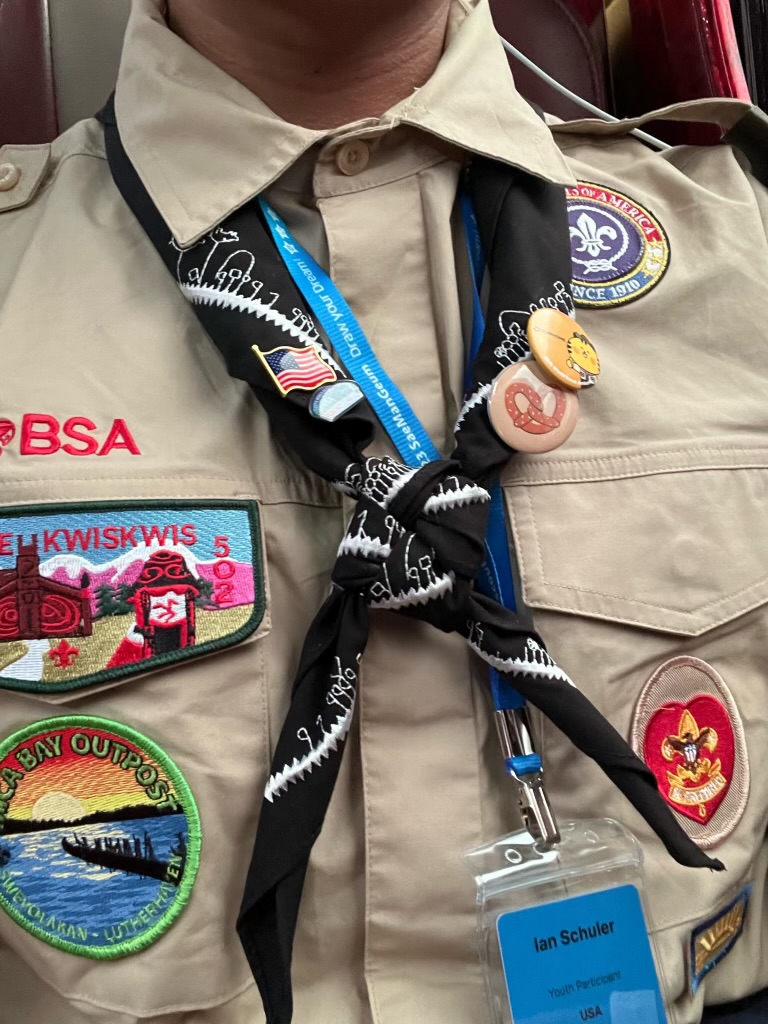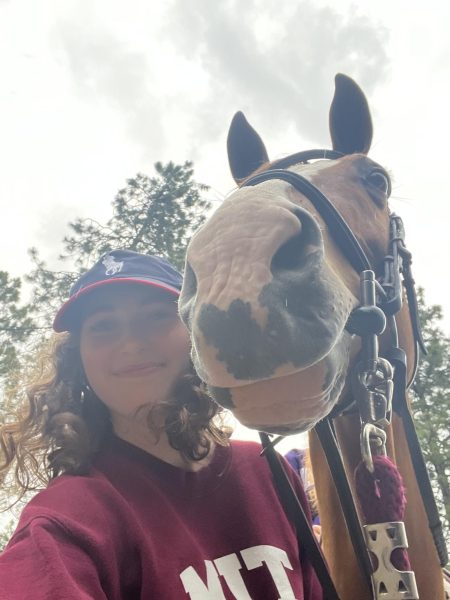When twins Ian and Miles S. ’25 boarded their flight to the weeklong 25th World Scout Jamboree, they never expected their time there to be cut short, to be evacuated to an army base, or to worry whether they’d return home as scheduled.
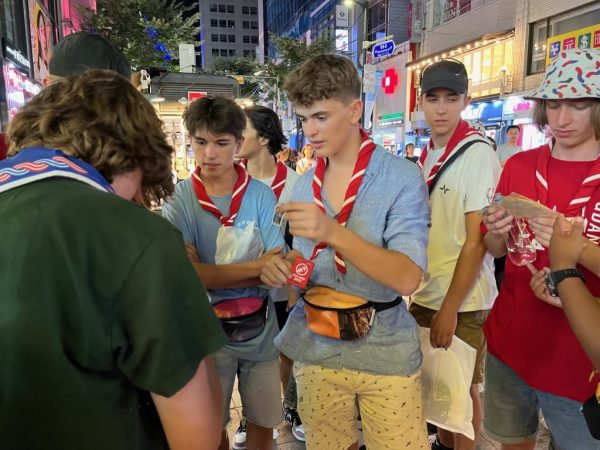
The jamboree, which occurs every four years and is open to scouts around the world between the ages of 14 and 18 (making it a once-in-a-lifetime opportunity for most), was hosted this year by the Korean Scout Association in SaeManGeum, South Korea. This year, over 40 thousand scouts from 158 countries attended, including about 700 scouts from the U.S. Though the event is open to all scouts, troops are expected to pay for airfare and a sizable attendance fee: upward of $6000 per person, which covers transportation, insurance, and events.
Miles, as Assistant Senior Patrol Leader, helped direct troops from Washington and Northern California through their trip, which consisted of an 11-hour plane ride to Seoul and an additional bus trip to the site. Having arrived in South Korea early, the twins and their troop settled into their first hostel and prepared for a week of sightseeing before the jamboree began.
The event was structured so that scouts from around the world could get to know each other and connect over their shared interests. Ian was only on-site for a day; he’d caught the flu that a fellow Troop 10 scout had brought from the States. (“Half our troop got infected,” he says. “Everybody hated him.”)
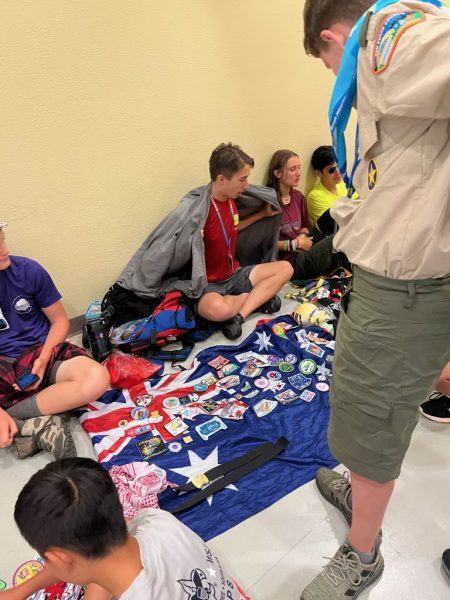
Miles, who spent a bit more time around the site, says there were activities such as boating in a nearby lake and trading contingent patches, neckerchiefs, and other memorabilia. Some scouts offered up parts of their uniforms; Ian even got his hands on a Polish belt. One of the troops from the Taiwan contingent invited the American troops over for dinner and a cultural exchange, showing them traditional Taiwanese music and dance.
However, the location of the jamboree proved to be a challenge, as the site encompassed nearly four square miles (Ian and Miles stayed a mile and a half from the main area) and could only be traversed on foot, and the heat had become insufferable. Temperatures were over 100 degrees every day, and based on the twins’ account, humidity at the site was upward of 90%. According to the Washington Post, the South Korean government issued a rare “serious” heat warning on the first day of the jamboree, August 1.
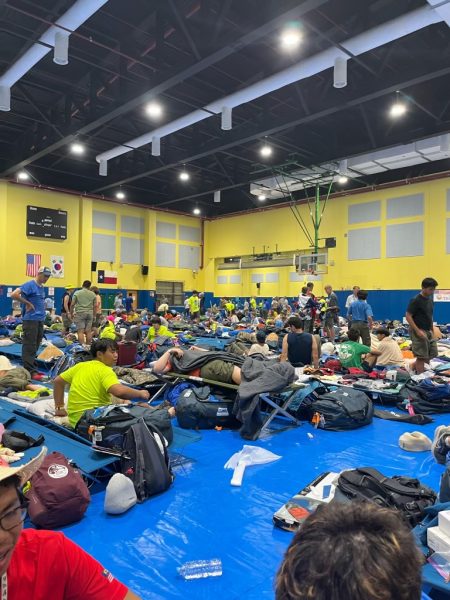
So, the hundreds of American scouts were moved to Camp Humphreys, the U.S.’s largest overseas military base located 40 miles south of Seoul in Pyeongtaek, and set up for the remaining few days in the base’s high school gymnasium. Every morning, they woke up to a crowded, fluorescent-lit room; breakfast prepared by volunteers; and a strict schedule for the day — which scouts only received a few hours before they left the base, in fear that the locations would be leaked to the press in search of interviews and information.
Their days consisted of visits to a mall, a water park, a cultural celebration featuring the Korea Taekwondo Association, and folk villages. Arguably an excess of folk villages. “I mean, it’s cool,” Ian adds. “But after the fifth folk village? Um, I think I’ve had enough culture.” They had free time at Camp Humphreys in the evenings. Some scouts played football with soldiers stationed at the base; others hung out in the multipurpose gym and listened to music; still more assembled Gundams, action figures they’d purchased at the mall. One day, scouts set up their tradables in the hallway for a makeshift farmers market.
While they tried to wait out the heat, the weather situation was becoming even more dire. Typhoon Khanun was approaching South Korea by way of Japan. By August 10, it had decreased in severity to a tropical storm and had reached the southeast coast. Still, over 14 thousand people were evacuated from the area, and American scouts felt the ripple effects of the storm in Pyeongtaek. Miles remembers stepping outside to severe wind and rain, and helping a girl in a wheelchair make her way from the base’s elementary school, where the girls’ troops were staying, to the main area. “It was extremely rainy for those one or two days,” he says.
He was also helping troubleshoot the troop’s return trip; at a patrol leader conference, attendees worried they wouldn’t be able to get home as scheduled due to the storm. “There was a little bit of doubt,” Ian says, “but nothing really happened, which was pretty lucky.”
Despite all the mishaps, Ian and Miles remember their time at the jamboree fondly, and their stories speak to everyone’s comradery throughout. It would’ve been hard for anyone to be prepared for this sequence of events, but if any population of American teens had to be stuck in a foreign country during a tropical storm and extreme heat, it’s probably best it was scouts.

